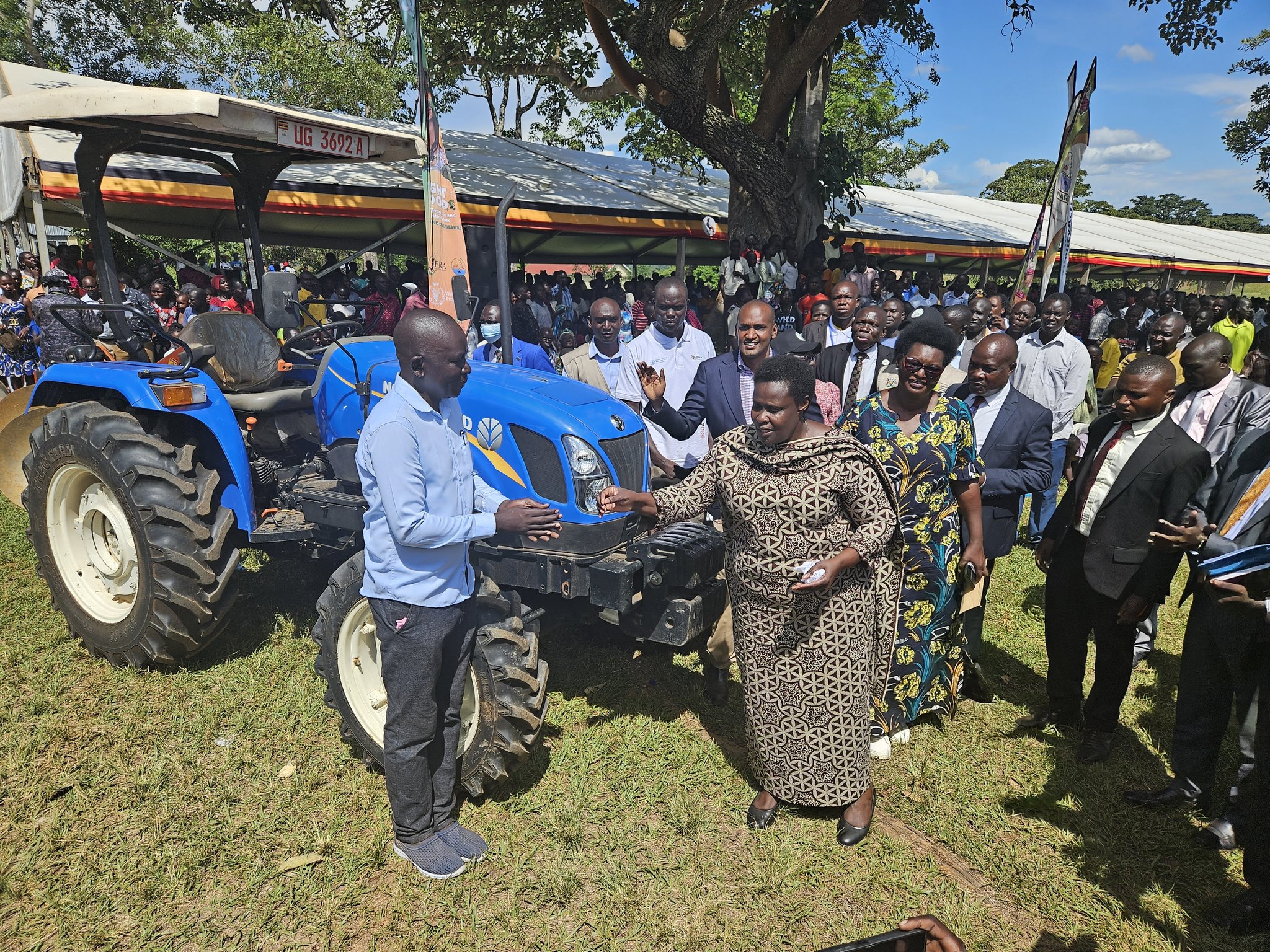SERERE, November 5, 2024 — Food and Agriculture Organisation of the United Nations [ FAO ] and the Government of Uganda have reaffirmed their commitment to the fight against hunger and malnutrition in the households of the country.
This was said during the recent commemoration of the 2024 World Food Day at the National Agricultural Research Organisation [NARO]’s National Semi-Arid Resources Research Institute [NaSARRI] in Serere district, Teso Subregion.
Presiding over the celebrations, Vice President Jessica Alupo called for more investments in agricultural infrastructure such as irrigation and water resource management, mechanisation, and post-harvest handling facilities to scale up food production in the country.
While volumes need to be increased, the Vice President also noted that food should not only be about quantity but quality as well.
“We need to improve food safety standards and promote nutrition-sensitive agriculture, ensuring that food not only fills bellies but is also nutritious to make our children have healthier lives. This is crucial to tackling malnutrition, especially among children and vulnerable persons. You also know that a healthy population is critical for national development,” she said.
On his part, Frank Tumwebaze, the Agriculture minister noted that while strides have been made in the industry, emerging threats are becoming more prominent, and this requires the concerted efforts of stakeholders to not derail food production.
“We must also recognise that the sector is facing challenges with the monstrous being Climate change – that threatens food production globally and in Uganda. Increasingly erratic weather patterns, prolonged droughts, and flooding are already affecting our farmers,” said Tumwebaze. “That is why the government is committed to scaling up investments in climate-smart agriculture, irrigation, and sustainable water use to mitigate these impacts and safeguard our food systems for future generations.”
In a speech delivered on behalf of Antonio Querido, FAO Representative in Uganda, Charles Owach, the Assistant FAO Representative stated that many Ugandans still struggle to access enough nutritious food.
“In Uganda, the IPC report of 2023 estimates that 1.73 million Ugandans were facing acute food insecurity. About a third of the population in Uganda cannot afford a healthy diet, contributing to a rising burden of malnutrition that includes undernutrition, micronutrient deficiencies, and obesity,” he said.
He stated that Uganda needs a holistic approach to transforming food systems; an approach that takes care of all value chains, as well as the natural environment.
“:Like in the rest of the world, securing food for all Ugandans is not just about growing more crops or raising more livestock. The entire agrifood system—from the way we farm, fish, and process food to how it is transported and consumed needs to be planned and managed well,” he said.
During the occasion, NARO released two new varieties of beans; NABE 14R and NABE 12CR, as well as three new varieties of groundnut; Naronut 3R [New Erudu], Naronut 4R and Naronut 3R [New Redbeauty].
Dr. Yona Baguma, Director General of NARO, reiterated the need for ongoing collaboration with farmers and other partners to ensure that every Ugandan has access to sufficient and nutritious food.
“We must innovate, collaborate, and advocate for policies that guarantee the right to food for all Ugandans,” he said.
https://thecooperator.news/naro-and-china-sign-mou-to-boost-food-production/
Buy your copy of thecooperator magazine from one of our country-wide vending points or an e-copy on emag.thecooperator.news
